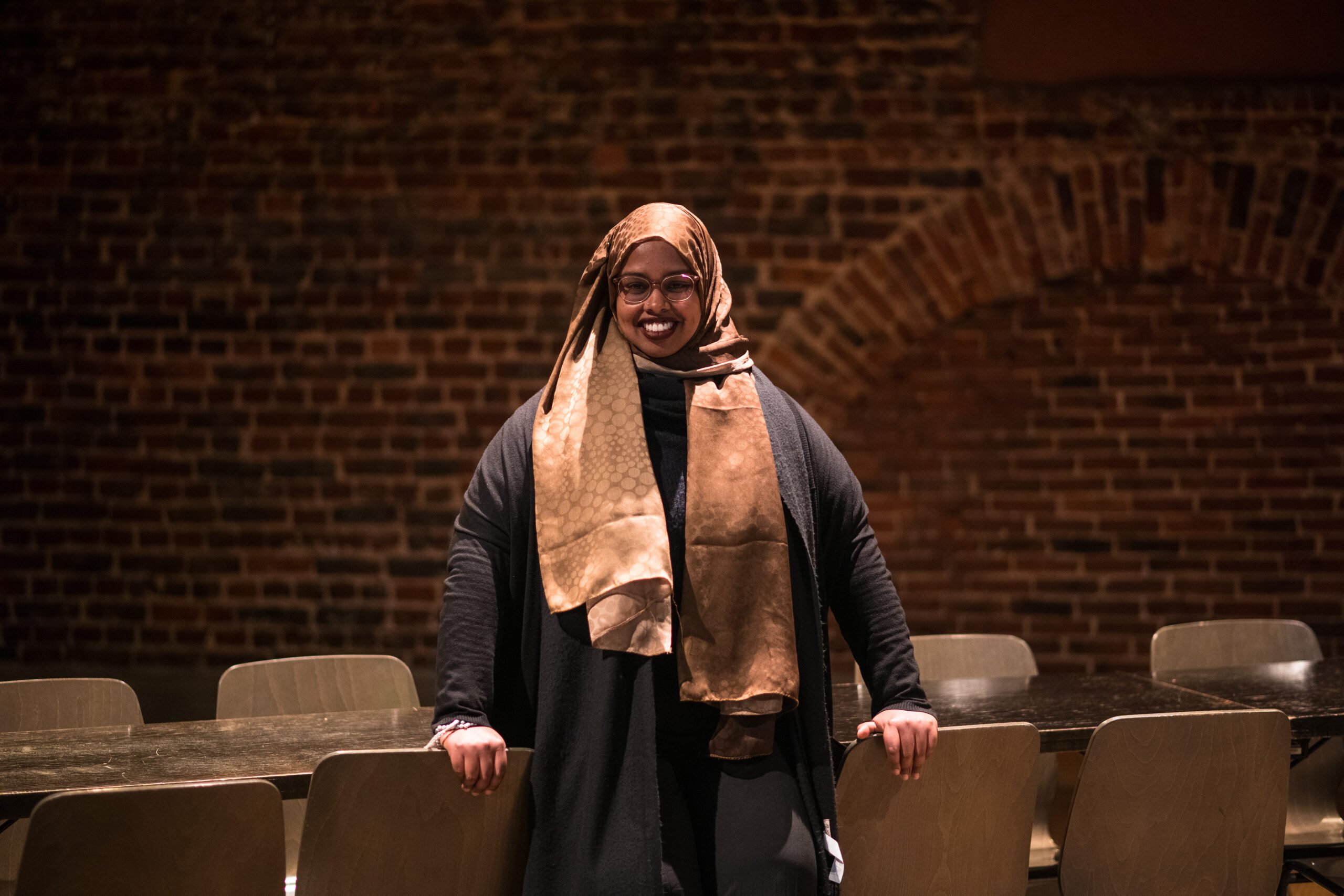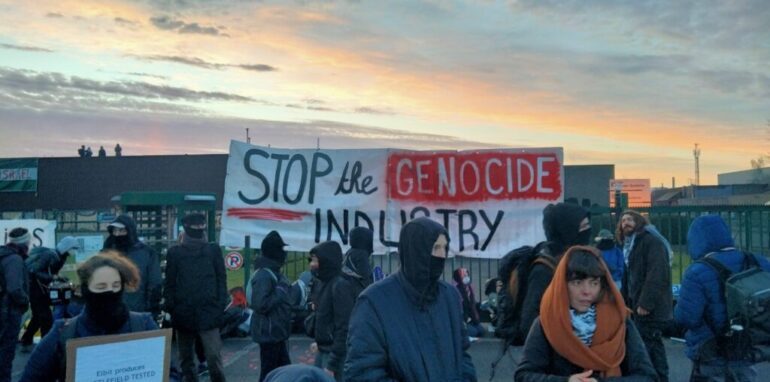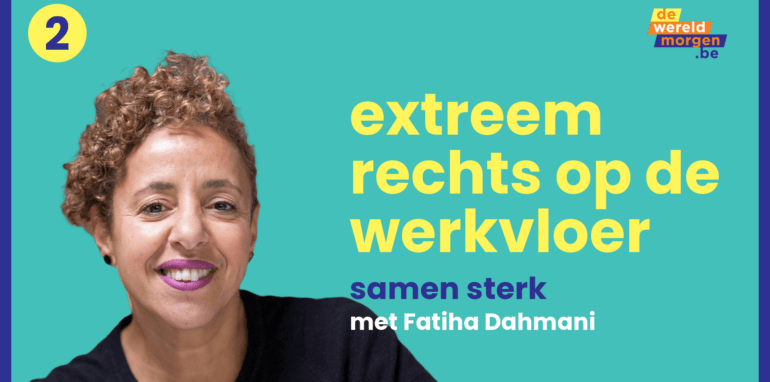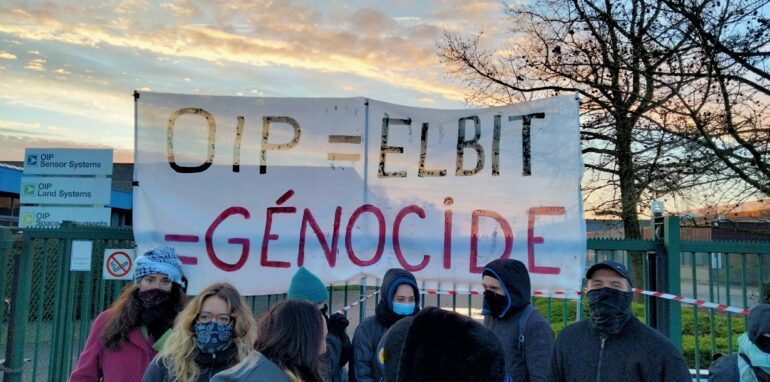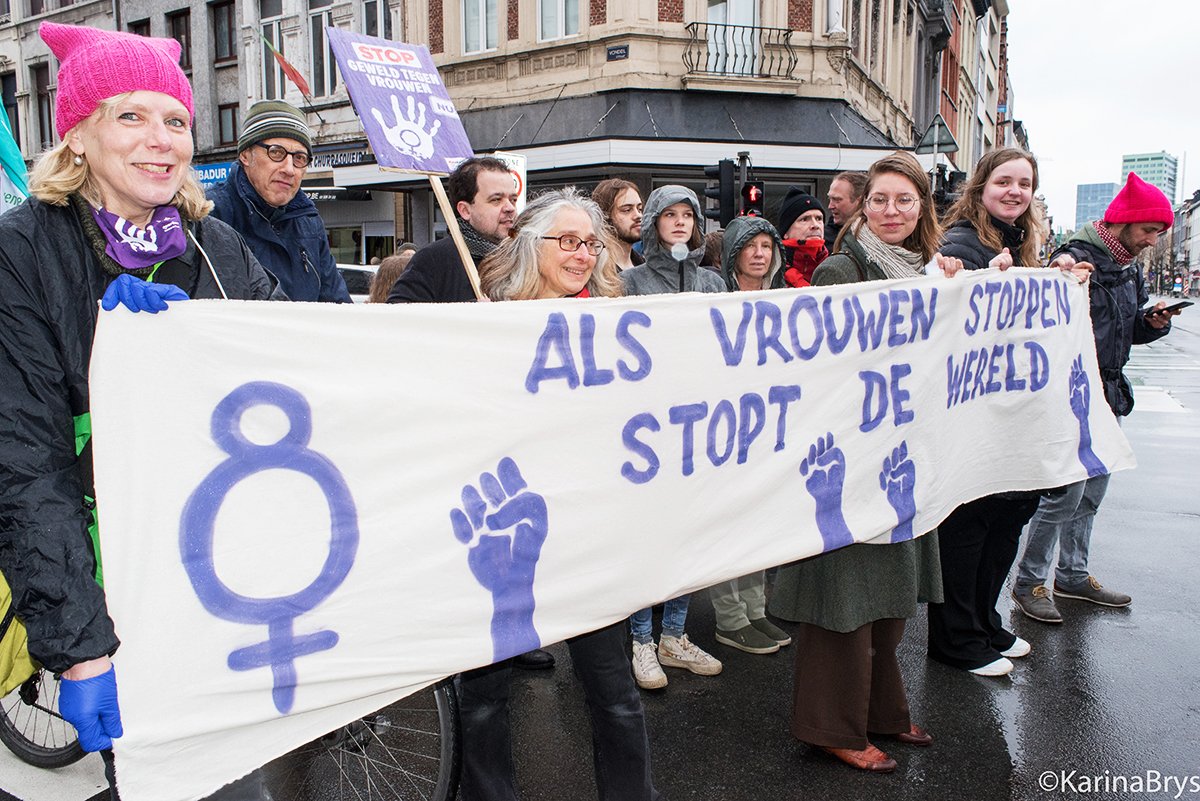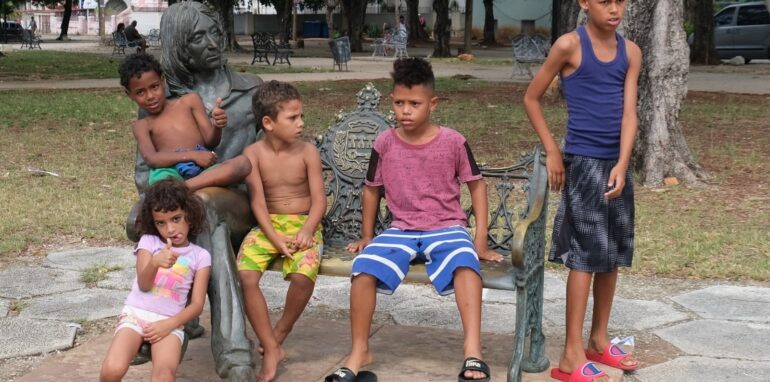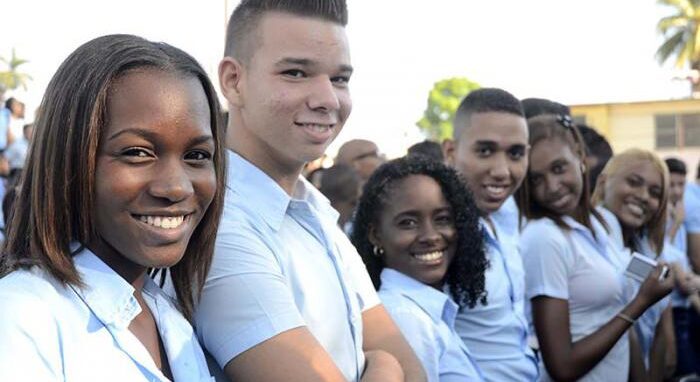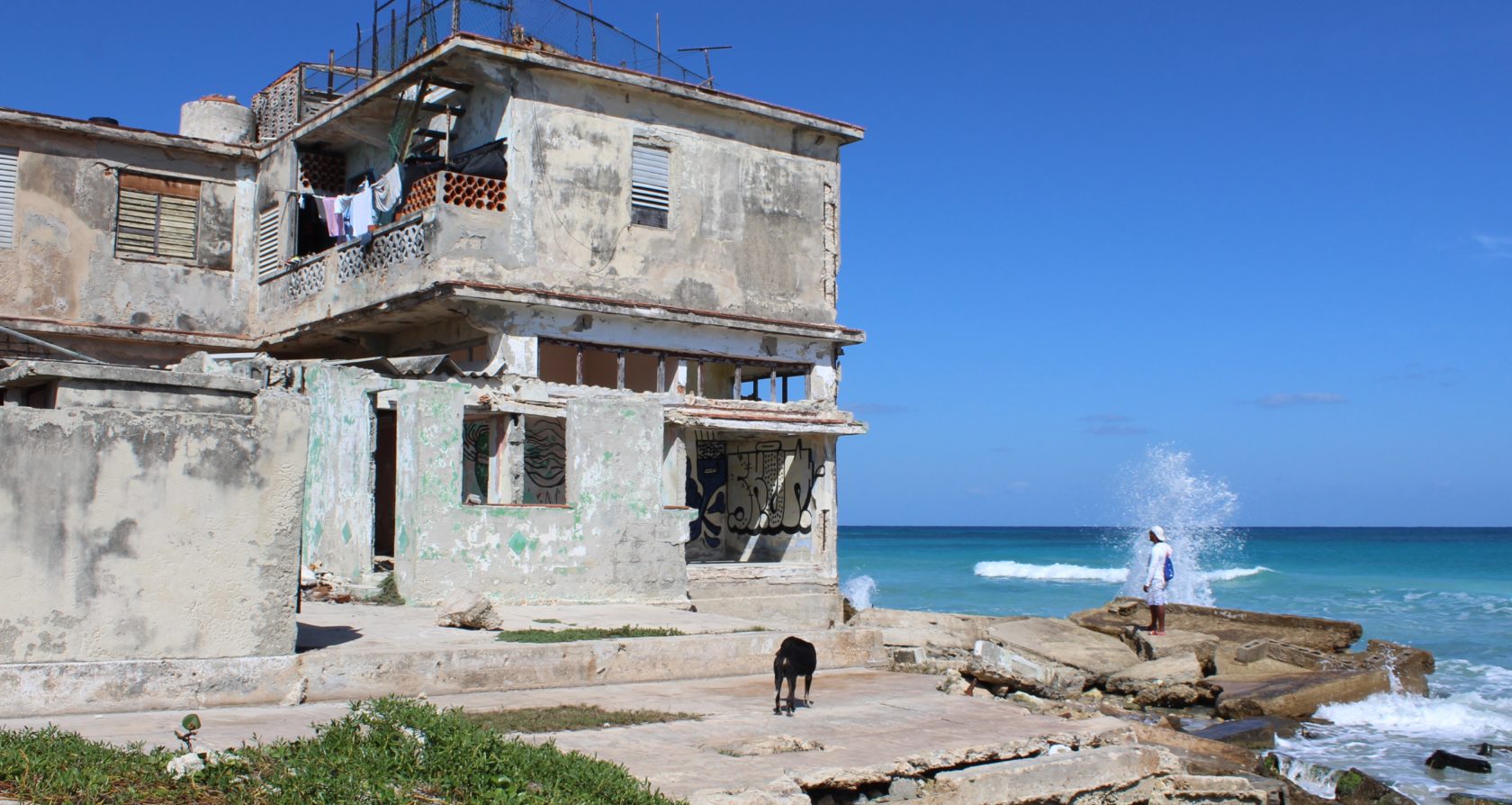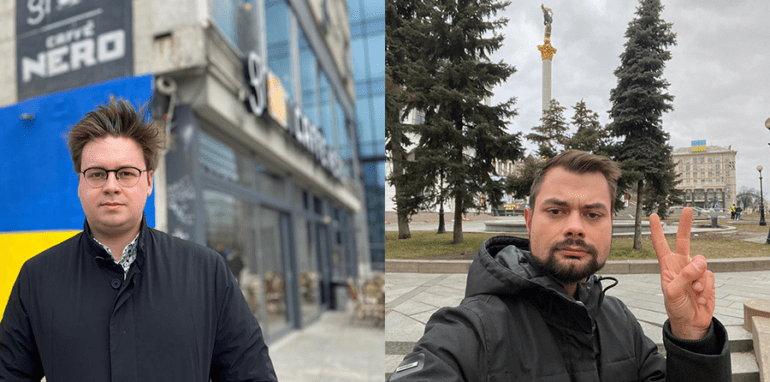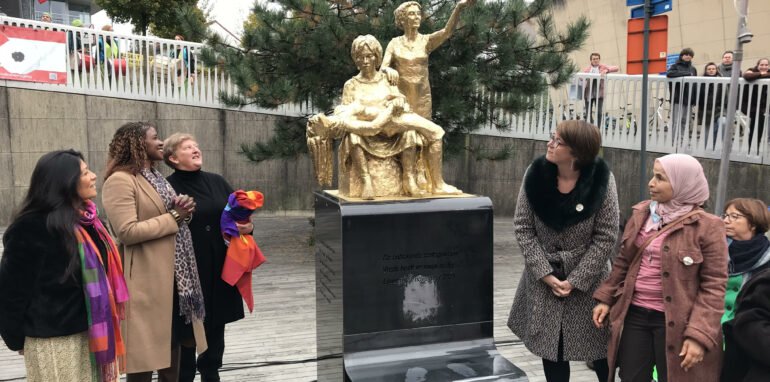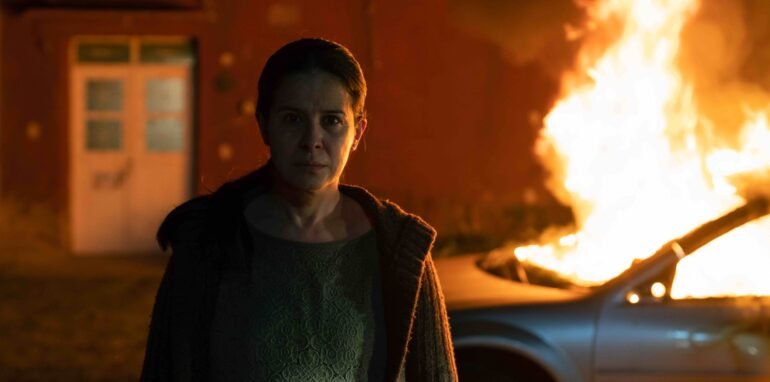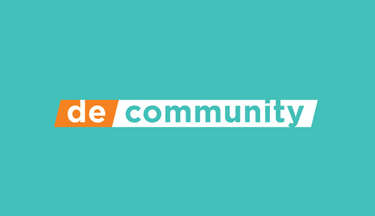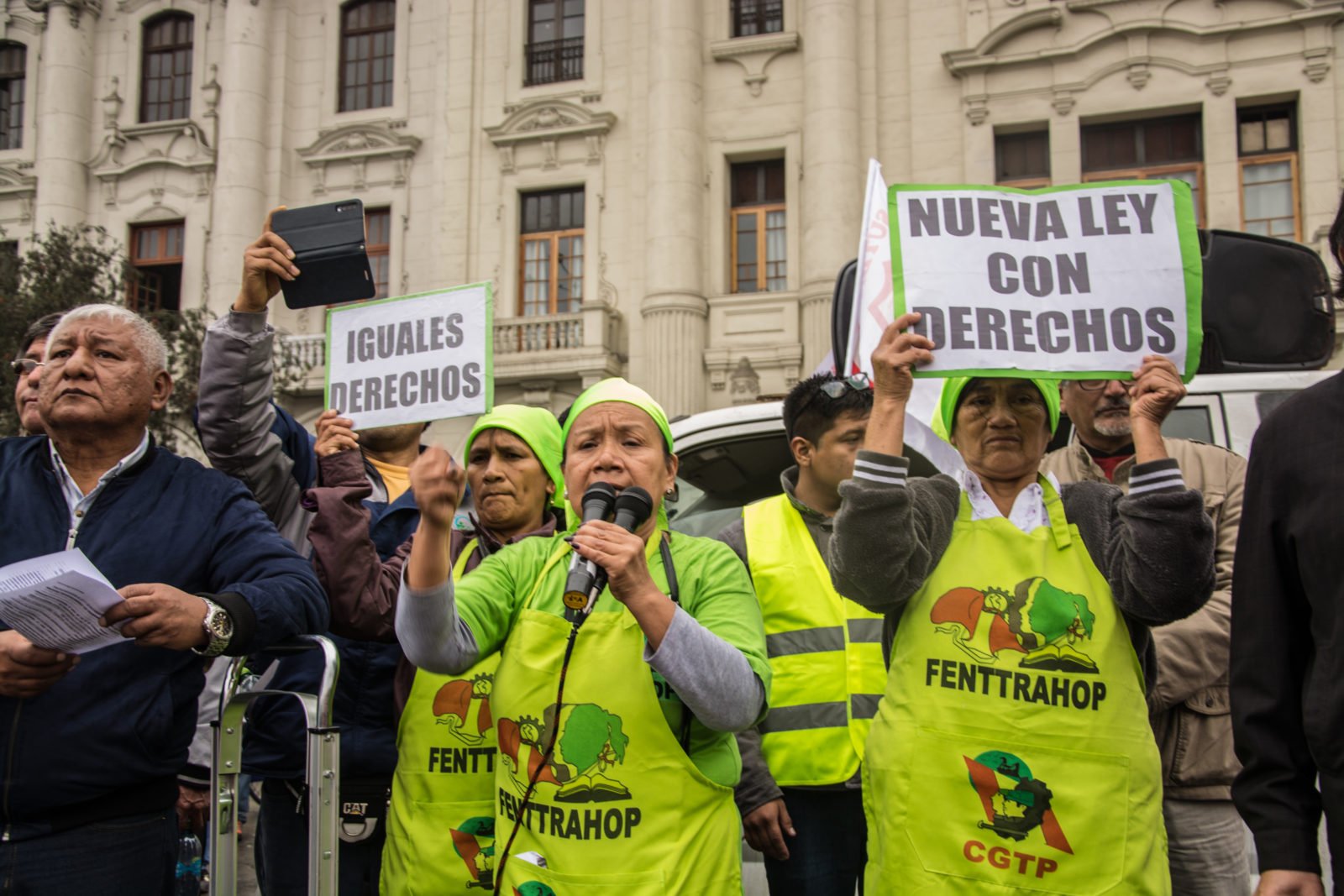Philsan Osman (she/her) is from Somalia. She is a writer, activist and community builder and studies African Languages and Cultures at Ghent University. She co-authored the book ‘Voor wie willen we zorgen? Ecofeminisme als inspiratiebron’, she is an event and production manager for Black History Month Belgium’s Ghent team and is an editor and writer for the online feminist magazine Spijker Magazine.
This conversation between Philsan Osman and Malkia Mutiri took place on the 9th of March.
How did you get involved, when did you decide to use your voice?
Philsan Osman: “I think it’s just something that happened. I started university and then found myself having to speak up more and more and then it kind of snowballed. It started with a talk here or an invitation there and from then on, more and more came my way.
Since I wrote the essay for the book Voor wie willen we zorgen?” that came out in 2021, my focus has been on how we should study intersections such as, for example the intersection between gender and class.
So the proces evolved organically, everything untill this point happened slowly and organically.”
How did the book come about, how did you write it and how do you feel now that it’s out in the world?
“Well, the part that I wrote came about while I was writing my thesis and other stuff for my exams, so for me there was no difference, it didn’t feel like I was writting a book, it felt like I was writting just another essay. When it came out and I saw it in book form, I couldn’t believe it (laughs out loud). I literally dissociated from my own name and my own face (my picture is on the back of the book).
I couldn’t believe that these were my actual words. I kept thinking “Are they written down an actual book? Are they being sold?” It was a very weird feeling. I think it’s only now, almost 6 months later that I feel a kind of connection, that I recognize stuff I wrote, how I wrote it and when I wrote it.
It was a very interesting period. I don’t think that me or the co-authors of the book (Dirk Holemans, Marie-Monique Franssen) understood what was going to happen when we wrote it because I think we were just writing it as a small booklet that was supposed to accompany the event called ‘Ecopolis’ (Ecopolis is an annual event with debates, talks, workshops for anyone concerned about a sustainable future on our planet).
We didn’t think that it was going to keep selling and get translated into french and english, we had no idea.”
You were on the panel on the 8th of March on Black Feminism in Belgium in the context of BHM. How do you feel about it now and what was your perspective from the stage during the panel?
“When I first got asked to be on the panel, I was actually very honored. I didn’t know how it was going to turn out but I hoped it would turn out the way it did yesterday.
Mostly i was just really, really happy that we were able to give space to black women and queer people to come together and share experiences but also to just ‘be’.
That’s one thing I noticed that night, a lot of people just being, just chilling, enjoying the conversation. It was really nice to see because I have been on panels before, talking about climate, and it’s always a very white audience.
So the last two events with BHM Belgium in Brussels, the one where I talk about the book with Malcom Ferdinand and the one on Tuesday about Black Feminism are the safest I have ever felt in a space talking about my work. Every time I look back on it, it just gives me energy.”

Philsan Osman on the panel ‘Black Feminism in Belgium: a look at the Past, Present, and Future’ on International Women Rights Day. Picture: Malkia Mutiri
You are a writer, an activist and a community builder, How do you think your role as a community builder informs/affects those other parts of your life?
“I think that in order for me to be a good writer, it is important to be a good part of my community. I need to understand where things are going well and where things are not going well.
And there where things are not going well I want to be able to try and see if there is a way that we can collectively come together and be collectively in service of one another. I think these different places or fields kind of feed each other out. If I had to quit anything else, the most important is to continue being in service of the community and to try to find ways in which I can be helpful.
So if I could only continue one thing, I would continue doing what I try to speak about on Tuesday during the panel, which is sharing the privileges that I have with the people that matter the most.

Philsan Osman on the panel ‘Black Feminism in Belgium: a look at the Past, Present, and Future’ on International Women Rights Day. Picture: Malkia Mutiri
What are the events you are personally looking forward to attend during Black History Month?
“I think if you’re black and queer, the Black Queer Fest in Antwerp (which will take place on the 19th of March @ Arenberg) should be something you should check out.
Chop Life … That something a lot of people will enjoy. For me the book fair, because it’ll be really nice to see all of those authors and books in one place and it’s just one of the events where BHM members worked very very hard on so I’d love to see how it works out, that’s coming from the 11th of March to the 13th in Antwerp.
And finally our exhibition here in Ghent. We collected photos that people in our community allowed us to use. We didn’t have a curator, we curated pictures that were supposed to represent times of Assembly.
So once that comes together, I think it’s going to be a nice space. Not just to come and look at the pictures and look at the exhibition but also to be in the space, to assemble in the space as well.
It works on different levels. So those are the kinds of things I’m looking forward too. I won’t be able to make it to all of them though, I can’t be in more than one place at once (laughs).”
